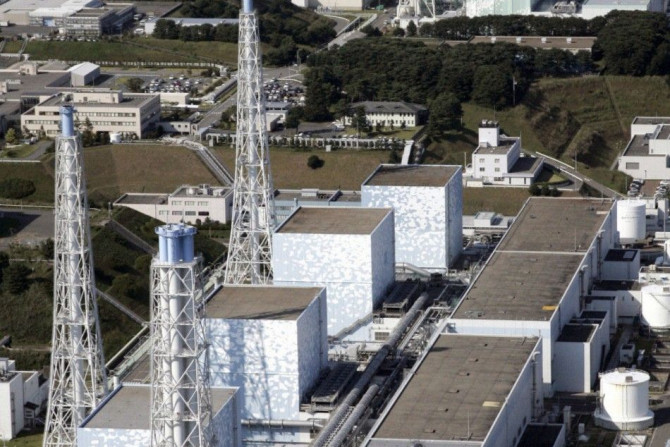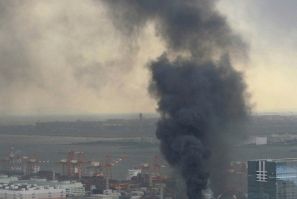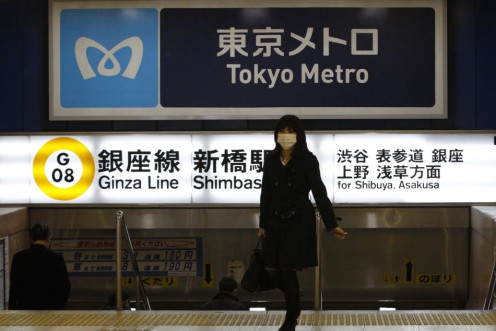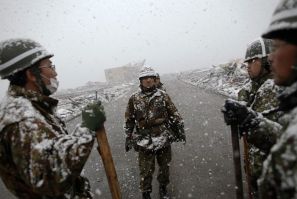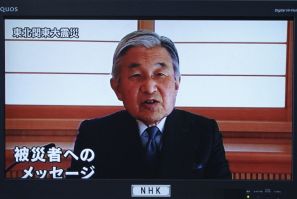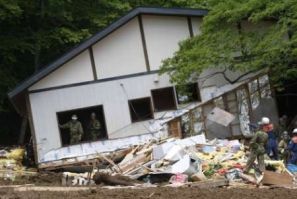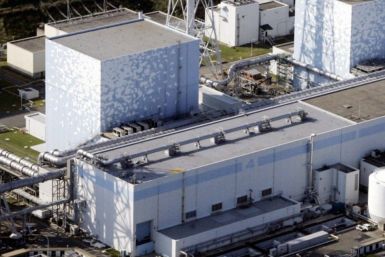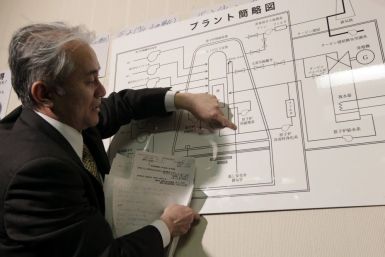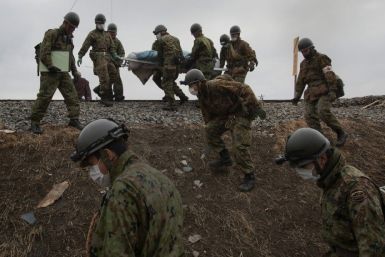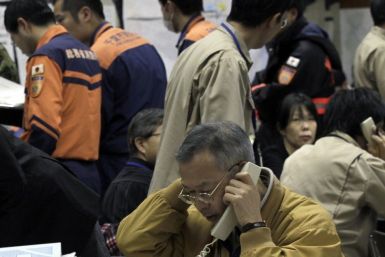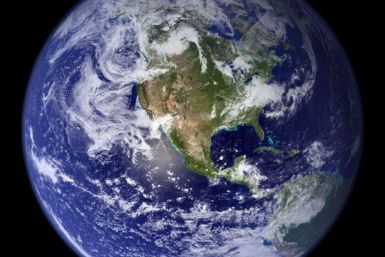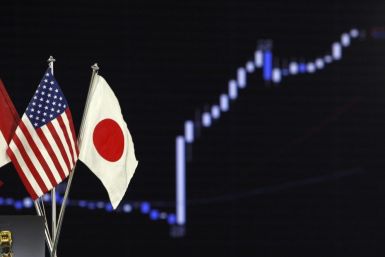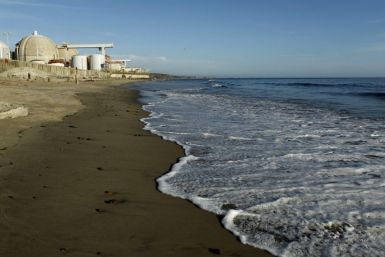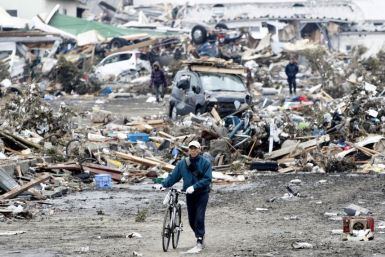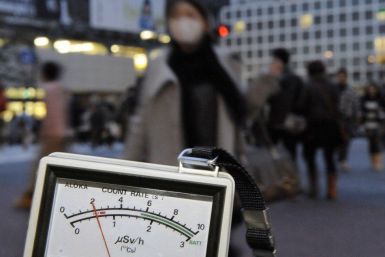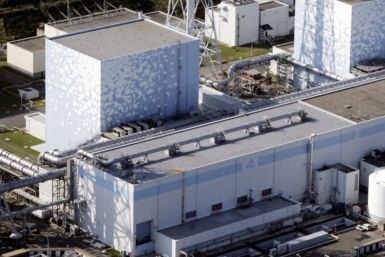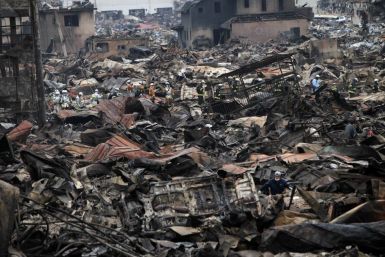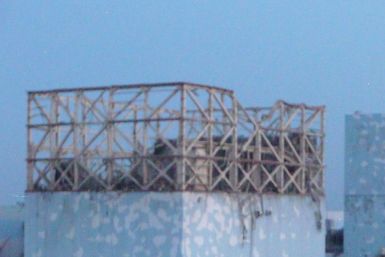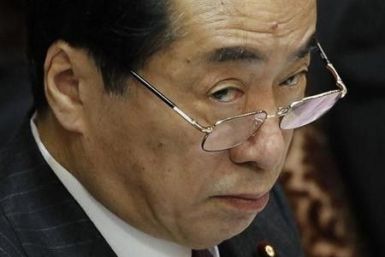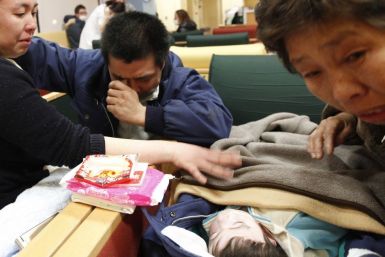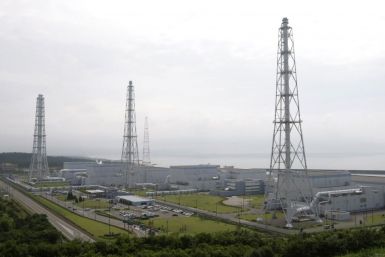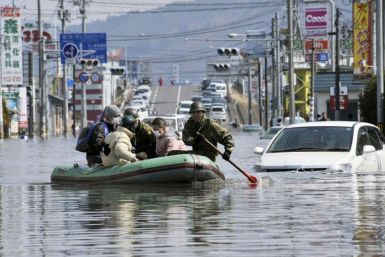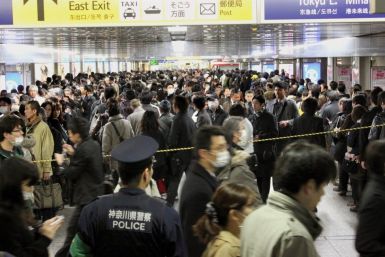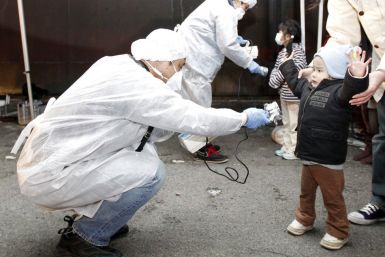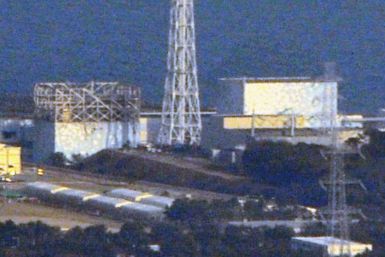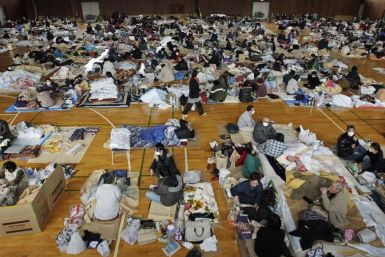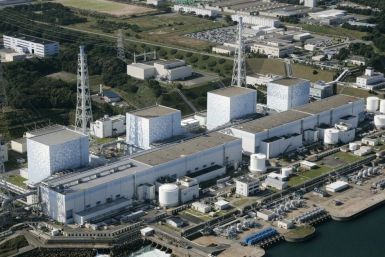A fire broke out once again early Wednesday but no flames were visible a half hour later at Fukushima power plant No. 1's No. 4 reactor, Tokyo Electric Power Co. said.
There is another fire at the No. 4 reactor at the Fukushima No. 1 nuclear power plant, Tokyo Electric Power Co. said at dawn on Wednesday.
Japan's soldiers have been assigned the grim task of searching for victims and survivors of Friday's 9.0 earthquake and subsequent tsunami.
The nuclear crisis in earthquake-ravaged Japan has hit a new peak of worry – engineers are concerned that two more reactors at the Fukushima Dai-ichi complex may have become unstable.
The Japanese earthquake shook the Earth so violently that it likely moved it from its axis and shortened the day.
Japanese and Japanese-Americans across the U.S. are mobilizing to send help to their homeland after the unspeakable damage wreaked by one of the worst earthquakes and tsunamis in history.
Nuclear power will continue to be a part of U.S. plans for power generation even as a nuclear crisis unfolds in Japan in which authorities are trying their best to prevent a meltdown at a plant on the nation's eastern coastline, a top official said on Tuesday.
Prices for memory chips are rising as the earthquake in Japan has raised supply chain concerns.
Radiation levels rose in Tokyo and some surrounding areas on Tuesday after the nuclear accident at the Fukushima No. 1 nuclear power plant in northeastern Japan, according to local governments.
Report that a containment system at the bottom of Unit 2 reactor at Fukushima Daiichi has been breached saw uranium companies' shares to tank on the bourses.
The Japan earthquake and tsunami could result in significant shortages of certain electronic components, potentially causing dramatic price increases, a market reaserch firm said.
Japan has confirmed that a fire at the spent fuel storage pond at an earthquake-hit reactor of Fukushima Daiichi nuclear power plant was extinguished on March 15 at 02:00 UTC, the International Atomic Energy Agency (IAEA) said.
Japan has informed the International Atomic Energy Agency (IAEA) that a spent fuel storage pond at an earthquake-damaged reactor is on fire and radioactivity is being released directly into the atmosphere, the Vienna-based U.N. atomic watchdog said.
The government of Japan, already battling against the deadly ravages of Friday’s earthquake-tsunami, has warned that the troubled No. 2 reactor at the badly-damaged Fukushima No. 1 nuclear power plant was still unstable, almost nearly five hours after workers poured seawater into it to try to cool down the fuel rods
Observers across the cyberworld have noticed something quite fascinating about the unfolding horror in Japan in the wake of the deadly earthquake and tsunami – a lack of looting by Japanese people, who, rather than take advantage of a crisis for personal gain, appear to be unified and behaving lawfully.
As previously warned, Japan’s dominant utility company Tokyo Electric Power Co. (TEPCO) has begun reducing electricity to some areas of the country, creating rolling blackouts in many regions, in an unprecedented measure to conserve power following the severe damage incurred by two key nuclear power plans in Japan’s northeast.
The death toll accruing from Friday’s massive earthquake in the region around Sendai – the epicenter of the disaster – has now surged over 5,000, with the discovery of 2,000 bodies along the coast of the Miyagi Prefecture.
The huge bustling metropolis of Tokyo, 150 miles south of the epicenter of Japan’s earthquake-tsunami disaster, has seen life come to a virtual halt in the face of unprecedented fears arising from the damaged nuclear power plants in Sendai.
Japan's Meteorological Agency on Sunday raised the earthquake's magnitude to 9.0 on Richter scale, one notch above the US Geological Survey's reading at 8.9. It was one of the biggest ever recorded in the world.
Some facts about US nuclear industry in the wake of a second explosion at Japan's Fukushima Daiichi Nuclear Power Station.
Japanese engineers are racing against the clock to stabilize a reactor at a quake-damaged nuclear plant in the northeast which has been shaken by a second explosion in the past three days.
Threat of a possible meltdown at Fukushima Daiichi nuclear plant in Japan has placed the roadmap of nuclear power as a source of energy on the back foot.


